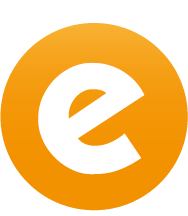Water Can
- In Person Training
- 10+
- 30 minutes


In Paulo Freire’s method, the content of the syllabus is developed with the indigenous people of each region (the target audience). The syllabus preparation is a process in which research and practice are carried out simultaneously and intertwined, in five very systematic and elaborate phases;
Phase 1:
On-site research conducted by the training team and volunteers from the region, which aims to explore the thematic universe of the population, as well as the main issues in their social situation and the concrete reality as it exists today.
Phase 2:
It involves both the selection of specific topics for discussion and the selection of words for analysis, which will generate critical speech as well as language development. Productive words are selected according to linguistic criteria and socio-political significance. Thus, most of the topics chosen come from the local community, but Freire argues that the team itself has the right to include some topics not proposed by the community.
Phase 3:
Codifications are made with these generative topics and words. These are visual representations of typical existential situations in the locality and are designed to present the issues to be discussed. The codings should represent familiar situations for local people, but should also lead to new perspectives for analyzing regional and national problems. Discussing these leads the participants towards a more critical consciousness. (At this stage, the thinking process is first carried out individually (writing, drawing, etc.) and then the discussion process is started as a group, giving the participants the space to express themselves.
important to ensure).
Phase 4:
Work syllabuses are developed to serve as guidelines for the co-coordinators. These are part of the training of co-coordinators and one of the most difficult parts of the whole program.
Phase 5:
A wide range of training materials are produced.
*When the preparation phase is thus accomplished, the syllabus content is ready to be developed during implementation.
**Once the problem has been defined, training work should be done to address the need.
*** Paulo Freire’s language of education is the cultural circle instead of the school, the coordinator instead of the teacher, dialogues instead of lectures, participants instead of students.
****Paulo Freire’s book “Pedagogy of the Oppressed” should be consulted for the details of his problem-defining education model.
There are no reviews yet.
| Cookie | Duration | Description |
|---|---|---|
| cookielawinfo-checbox-analytics | 11 months | This cookie is set by GDPR Cookie Consent plugin. The cookie is used to store the user consent for the cookies in the category "Analytics". |
| cookielawinfo-checbox-functional | 11 months | The cookie is set by GDPR cookie consent to record the user consent for the cookies in the category "Functional". |
| cookielawinfo-checbox-others | 11 months | This cookie is set by GDPR Cookie Consent plugin. The cookie is used to store the user consent for the cookies in the category "Other. |
| cookielawinfo-checkbox-necessary | 11 months | This cookie is set by GDPR Cookie Consent plugin. The cookies is used to store the user consent for the cookies in the category "Necessary". |
| cookielawinfo-checkbox-performance | 11 months | This cookie is set by GDPR Cookie Consent plugin. The cookie is used to store the user consent for the cookies in the category "Performance". |
| viewed_cookie_policy | 11 months | The cookie is set by the GDPR Cookie Consent plugin and is used to store whether or not user has consented to the use of cookies. It does not store any personal data. |
There was a problem reporting this post.
Please confirm you want to block this member.
You will no longer be able to:
Please note: This action will also remove this member from your connections and send a report to the site admin. Please allow a few minutes for this process to complete.


